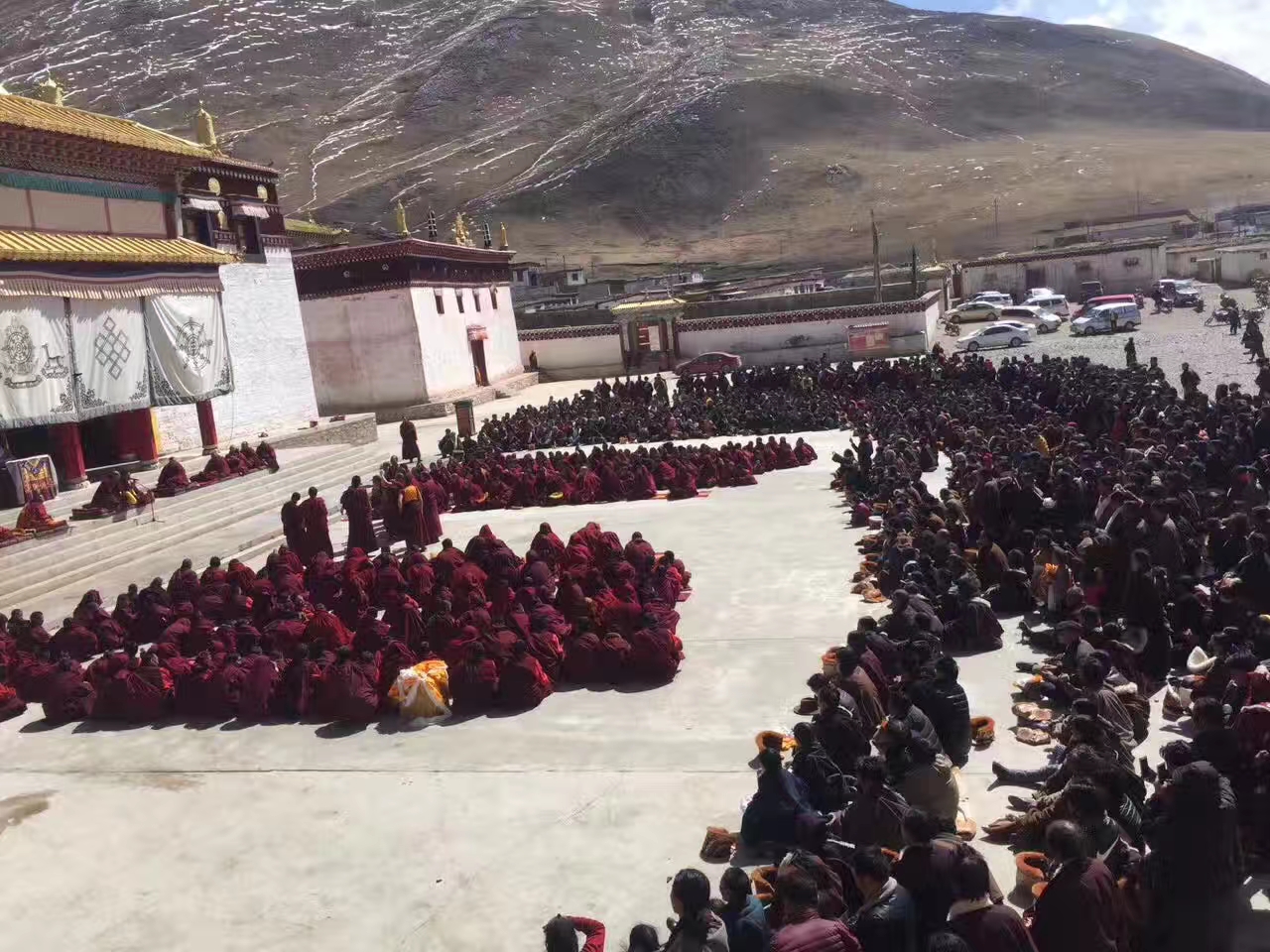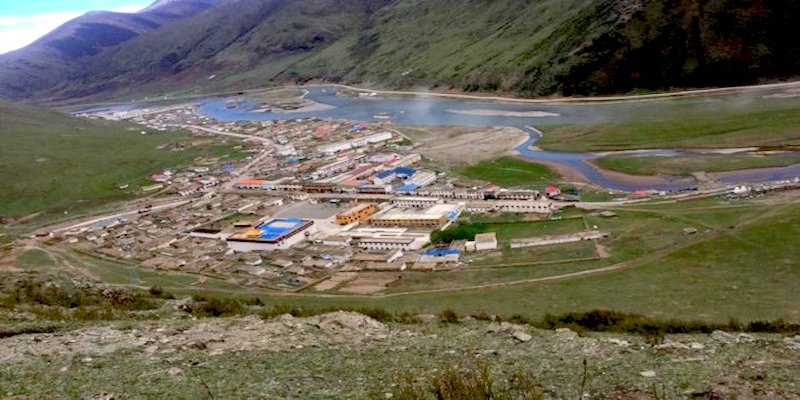
Eight More Tibetans Detained Amid Heightened Climate of Fear
At least 110 people have been detained in Dza Wonpo over the past month
Eight more Tibetans were arrested on 3 September after their home was searched for the images of the Dalai Lama. Tibet Watch has found that these include six monks from Dza Wonpo Monastery and two women from the village.
Of those detained, the six monks were first called to appear before the local government office, and then they were taken back to their rooms at the monastery for the search operation, each of them accompanied by five to six security personnel. They were then interrogated separately and later taken back to police custody. The two women were also forcefully taken away from their home the same day and detained.
Over 100 Tibetans Detained

Dza Wonpo Township. (Photo Voice of Tibet)
The latest arrests bring the number of detained Tibetans in Dza Wonpo to around 110. There were two waves of mass arrests between 21 to 30 August 2021, which were an escalation of military and police search operations taking place in the area since November 2019, when six young Tibetans protested for Tibet’s independence in response to Chinese officials touring the region. The local Tibetans were forced to praise China and the Chinese Communist Party’s “Poverty Alleviation ” policy and put portraits of CCP leaders on their shrines. Forced statements, images and videos of such are routinely filmed and shared by Chinese state news outlets as evidence of the resettled Tibetan nomads being happy and prosperous under the Chinese occupation. These top-down orders were the immediate cause for their protests.
One of the six Tibetan youngsters, 19-year-old Tenzin Nyima, was left in a comatose state after being tortured from his rearrest on 11 August 2020 for sharing the news of his arrest on 7 November 2019 and contacting Tibetans in exile in India. Upon his release in October 2020, his family and local villagers, who are recipients of the so-called “poverty alleviation” state-aid, had to raise money amongst themselves for his medical expenses, which came to 40,000 yuan (4,500 GBP). Tenzin Nyima’s admission to a hospital had initially been delayed due to his family being unable to pay the huge sum.
The solidarity shown by Tibetans of Dza Wonpo followed with the mass arrests and military lockdown in Dza Wonpo. The continuation of surveillance on information flow outside Tibet forms an integral part of the systematic repressive policies of the Chinese Communist Party to eradicate Tibetan identity and break Tibetan’s allegiance to their exiled spiritual leader, the Dalai Lama.
Amongst the arrested are Tibetans who are routinely held in suspicion by the local authorities, including volunteer Tibetan language teachers and many members of the Association for the Preservation of the Tibetan Language (Tib: ཕ་སྐད་སྲུང་སྐྱོབ་ཚོེགས་པ་). According to the source, these arrests are also indicative of wider Chinese policies which target local community leaders who are active in mobilising discussions and activities related to environmental protection and preservation of the Tibetan language.
The dramatic dropdown in the number of detentions in Dza Wonpo happened after the search operations in March, mass arrests in late August, and the recent upscaled recruitment of civilian spies and appointment of two monks of the Monastic Management Committee at Dza Wonpo Monastery to monitor those refusing to participate in and cooperate with the official programs and search operations.
The authorities had also mandated a compulsory installation of software in everyone’s mobile phones under the pretext of personal security, but local Tibetans later learnt that the software was used to conduct surveillance by tracking their online activities and as well as geolocation when their phones are not connected to the Internet.
Information supplied by Tibet Watch

